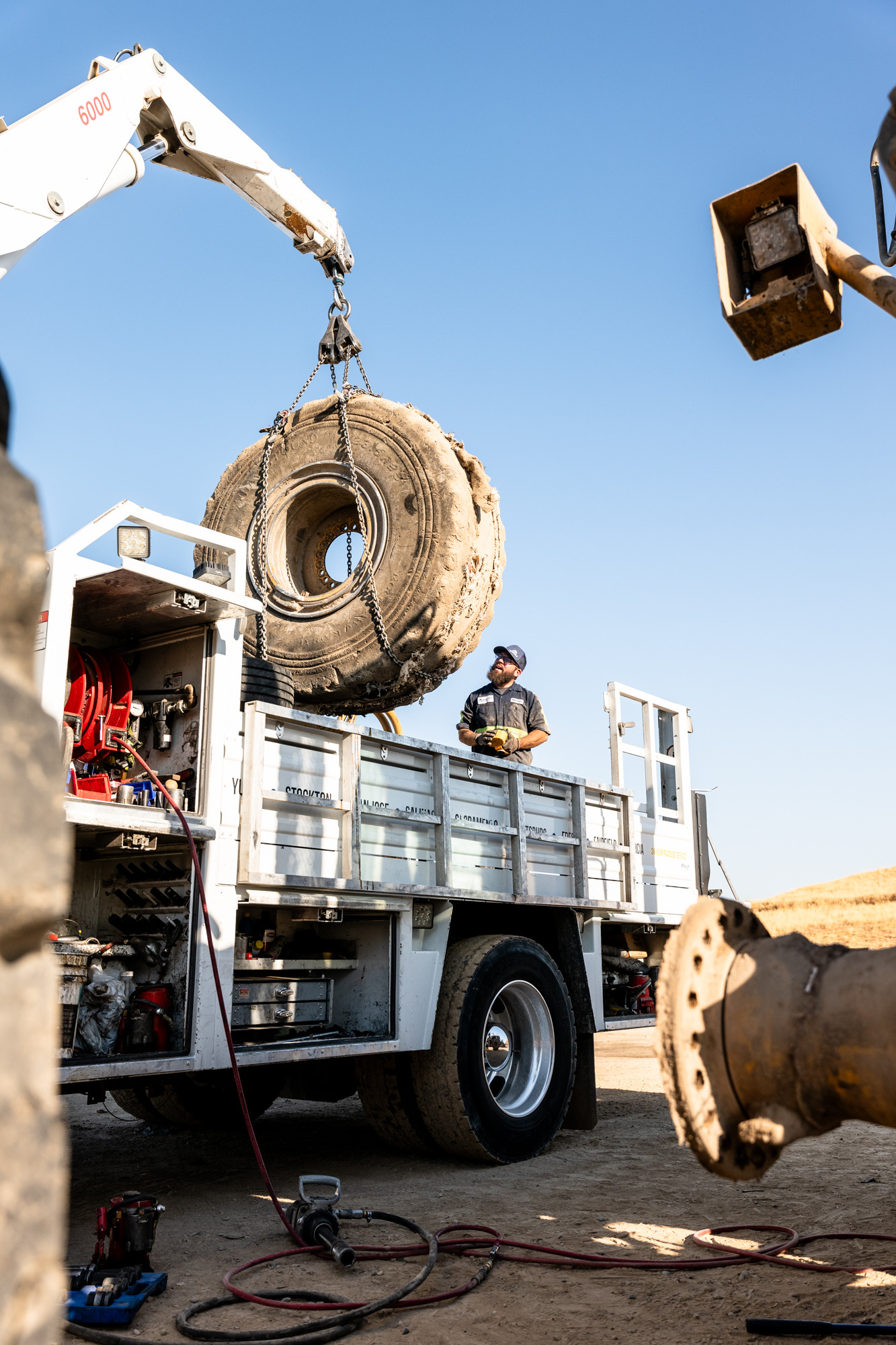Keep Rolling Properly: GMC Tires Service by Morris Tires
Keep Rolling Properly: GMC Tires Service by Morris Tires
Blog Article
Tire Service: The Effect of Climate Condition
When it concerns guaranteeing optimal performance and safety and security on the roadway, comprehending the impact of climate condition on tire solution is vital. From scorching warmth to icy roads, each weather component can considerably affect tire capability and total driving experience. By delving right into the effects of varying weather conditions on tires, motorists can get valuable insights that might boost their automobile's performance and durability. In this conversation, we will certainly discover the elaborate connection in between weather problems and tire solution, dropping light on the relevance of weather-specific tire upkeep methods and factors to consider.
Warm and Tire Efficiency
When exposed to high temperatures, tires experience modifications in performance that can considerably influence car safety and handling. The warm generated from prolonged driving or hot weather condition conditions triggers the tire rubber to soften, leading to lowered tread life and raised wear.

Winter Impacts
Winter conditions can have a substantial influence on tire performance and security. As temperature levels drop, tire rubber can solidify, causing reduced traction on icy or snow-covered roadways. In cold weather, tires might also lose air pressure a lot more rapidly, which can affect managing and gas efficiency. Additionally, cool temperatures can trigger tire sidewalls to tense, increasing the danger of damage from pits or other road hazards.
To minimize the effects of chilly climate on tires, it is essential to routinely check tire pressure and inflate them to the supplier's suggested levels. Utilizing winter months or all-season tires made for cool climate conditions can additionally improve traction and hold on icy or snowy roads. Appropriate tire upkeep, including routine assessments for wear and damages, becomes a lot more crucial during chillier months to guarantee optimal performance and safety.
Rainy Conditions Impact
Tires with worn-out footsteps are extra prone to hydroplaning, where a layer of water develops up between the road and the tire surface area, leading to loss of traction. To fight this, chauffeurs ought to regularly check their tires for ample tread deepness and think about spending in tires especially developed for damp problems.
Moreover, wet climate can also decrease visibility, making it testing for chauffeurs to see the road in advance clearly (GMC Tire Service). In such problems, it is important to change driving rates appropriately and preserve a secure following range to allow for unexpected stops. Correctly inflated tires can also assist in maintaining control on wet roads by giving far better handling and hold
Snow and Tire Safety And Security
Snow-covered roads posture special difficulties for vehicle drivers, emphasizing the value of proper tire selection and upkeep. When driving in snowy conditions, having the appropriate tires can make a substantial difference in security and efficiency. Winter months tires are from this source designed with special rubber compounds and step patterns to offer far better traction on snow and ice compared to all-season tires. The much deeper footsteps and sipes of winter tires assist hold the roadway much better, reducing the risk of gliding and slipping.

In addition, drivers should take into consideration mounting tire chains in severe snowy conditions. Tire chains offer extra traction by grasping the snow and ice, enhancing stability and control. Nevertheless, it is very important to adhere to supplier instructions when mounting and utilizing tire chains to stop damages to the tires and lorry. By picking the ideal tires, preserving appropriate rising cost of living, and thinking about extra traction help like tire chains, vehicle drivers can enhance their safety and security when navigating snow-covered roads.
Weather-Related Tire Maintenance
Weather-related tire upkeep encompasses a variety of techniques aimed at ensuring ideal tire function and longevity in different weather circumstances. One vital facet of weather-related tire upkeep is tire stress guideline. Examining tire tread on a regular basis and replacing tires when step wear gets to a specific depth is vital for maintaining grip and stability in unfavorable climate.
Verdict
Finally, climate condition have a significant effect on tire performance and safety. From heat impacting tire pressure and wear to cold weather condition lowering grip, it is essential to take into consideration the weather condition when preserving and using tires. Stormy conditions can check my reference decrease grip and bring about hydroplaning, while snow can boost the threat of accidents if tires are not effectively outfitted. Weather-related tire upkeep is crucial in ensuring optimum performance and security when traveling.
In this conversation, we will explore the complex partnership between climate problems and tire solution, shedding light on the significance of weather-specific tire upkeep techniques and factors to consider.

Report this page